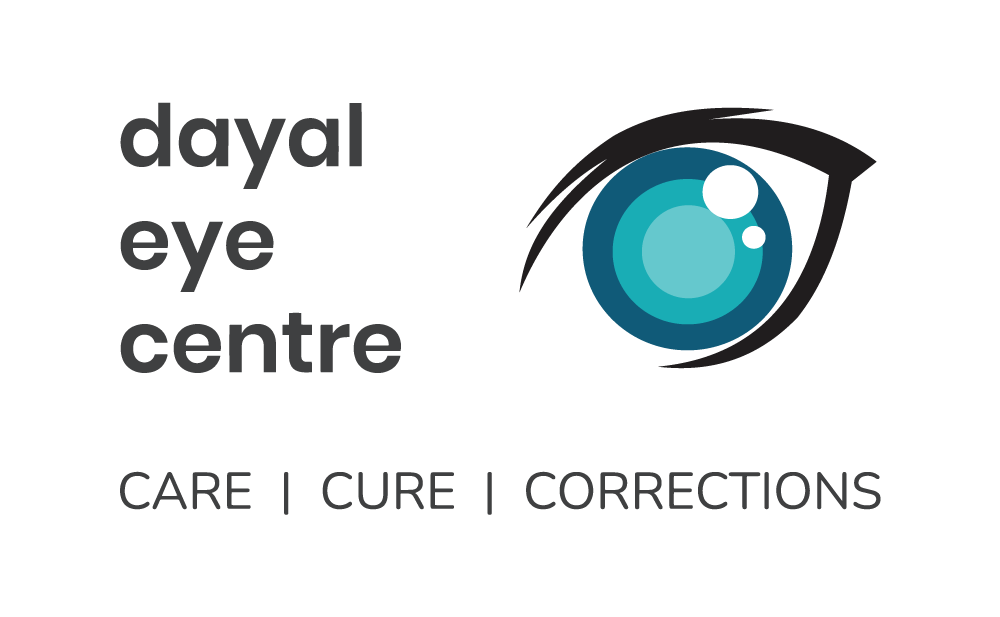Best SMILE Eye Surgery in Haryana
SMILE Eye Surgery is perfect for people who want to stop using glasses or contact lenses. It corrects vision problems like nearsightedness, farsightedness, and astigmatism, giving you clear, natural vision with minimal disruption. The procedure uses a precise femtosecond laser to create a tiny 2-4 mm cut and removes a small piece of corneal tissue, reshaping the eye for accurate results. At Dayal Eye Centre, we specialize in SMILE Surgery, combining advanced technology with personalized care. Our experienced surgeons follow a careful and effective approach to help you achieve sharp vision and enjoy life without glasses or contacts.
1,25,000+ Eye Operated
Cashless Payment
NABH Accredited
Advanced Technology
Expert Professionals
Personalized Care
On Time Service
20+ Years of Trust
Excellence Achieved in Eye Care Field











Dayal Eye Centre
Dayal Eye Centre is a trusted eye care hospital recognized for delivering top-quality treatments. With over 120,000 successful surgeries performed, our team of experienced doctors uses advanced technology to ensure the best possible outcomes for our patients. As an NABH-accredited facility, we are committed to maintaining the highest standards of patient safety and care. Our goal is to offer affordable healthcare solutions that enhance the health and well-being of the community we serve.
What Is SMILE Surgery?
SMILE (Small Incision Lenticule Extraction) surgery is the latest and advanced procedure for correcting vision problems such as myopia, hypermetropia, astigmatism, and presbyopia. It works by reshaping the cornea to ensure light focuses correctly on the retina, leading to clearer vision and less dependence on glasses or contact lenses. SMILE is a minimally invasive technique that offers a comfortable experience, fast recovery, and long-lasting results.
At Dayal Eye Centre, we support you through every step of the SMILE procedure. Our expert team of surgeons uses cutting-edge technology to ensure safe and effective treatment. Book a consultation today to discover how SMILE can transform your vision!
What Causes Refractive Errors?
Myopia (Nearsightedness): Often inherited and develops during childhood. Tends to progress during the teenage years.
Hyperopia (Farsightedness): Can be inherited. Typically seen in children, it often decreases as they grow older.
Presbyopia: Caused by aging, as the eye’s lens becomes rigid and less flexible after age 40.
Astigmatism: Occurs due to an uneven corneal shape, leading to blurry or distorted vision.
What are the Symptoms of Refractive Errors?
Blurry Vision: Difficulty seeing clearly, especially at certain distances.
Doublesight: Perceiving two distinct images of one object.
Hazy Vision: Objects appear unclear or foggy.
Headache: Frequent headaches, often caused by eye strain.
Squinting: Attempting to focus by squinting, which may help temporarily.
Eye Fatigue: A sensation of discomfort or tiredness in the eyes.
Eye Pain: Soreness or discomfort in the eyes.
Trouble Focusing: Difficulty focusing on objects, especially at close range.
If you experience any of these symptoms, get your eyes checked right away at Dayal Eye Centre.
Types of SMILE Surgery
Standard SMILE: Involves a small incision on the cornea and a laser to create and extract a lenticule to correct refractive errors.
ReLEx SMILE: A more advanced version using a femtosecond laser for a minimally invasive approach.
TransPRK SMILE: Combines the benefits of TransPRK and SMILE, offering an excellent alternative for individuals who aren’t suitable for traditional LASIK.
Enhanced SMILE: Uses advanced technologies to improve outcomes for optimal vision correction.
Reach out to Dayal Eye Centre today to know which SMILE procedure is right for you!

Zeiss Visumax SMILE
At Dayal Eye Centre, we use the ZEISS VisuMax SMILE procedure to provide a groundbreaking solution for correcting myopia (nearsightedness) and astigmatism. This advanced, minimally invasive technique offers exceptional precision, safety, and comfort, delivering excellent visual results for our patients. The VisuMax system employs high-precision femtosecond laser technology to create a tiny lenticule inside the cornea, effectively correcting refractive errors. Unlike conventional LASIK, SMILE involves a small 2-4 mm incision that helps preserve the cornea’s structure, leading to faster healing and a lower risk of complications. This approach also minimizes the likelihood of dry eye and supports quicker recovery of clear vision.
Doctor Instructions
Our Youtube Videos
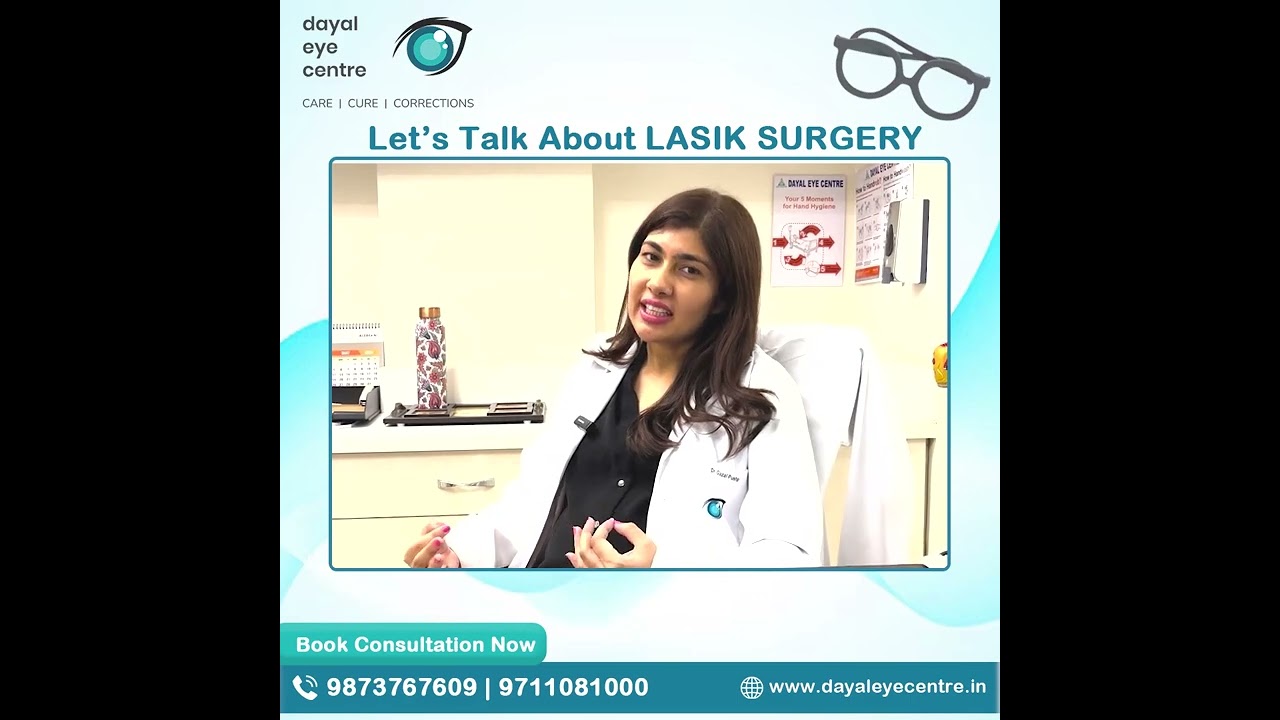
2:15

3:27
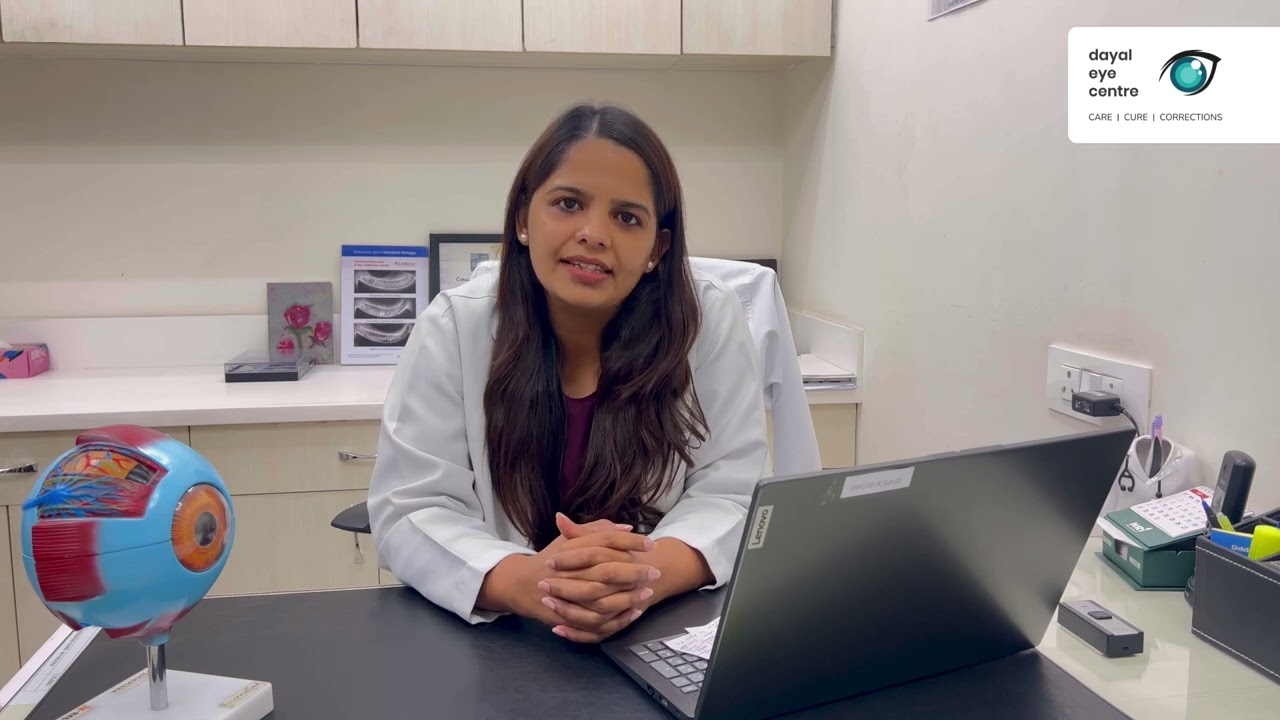
1:28
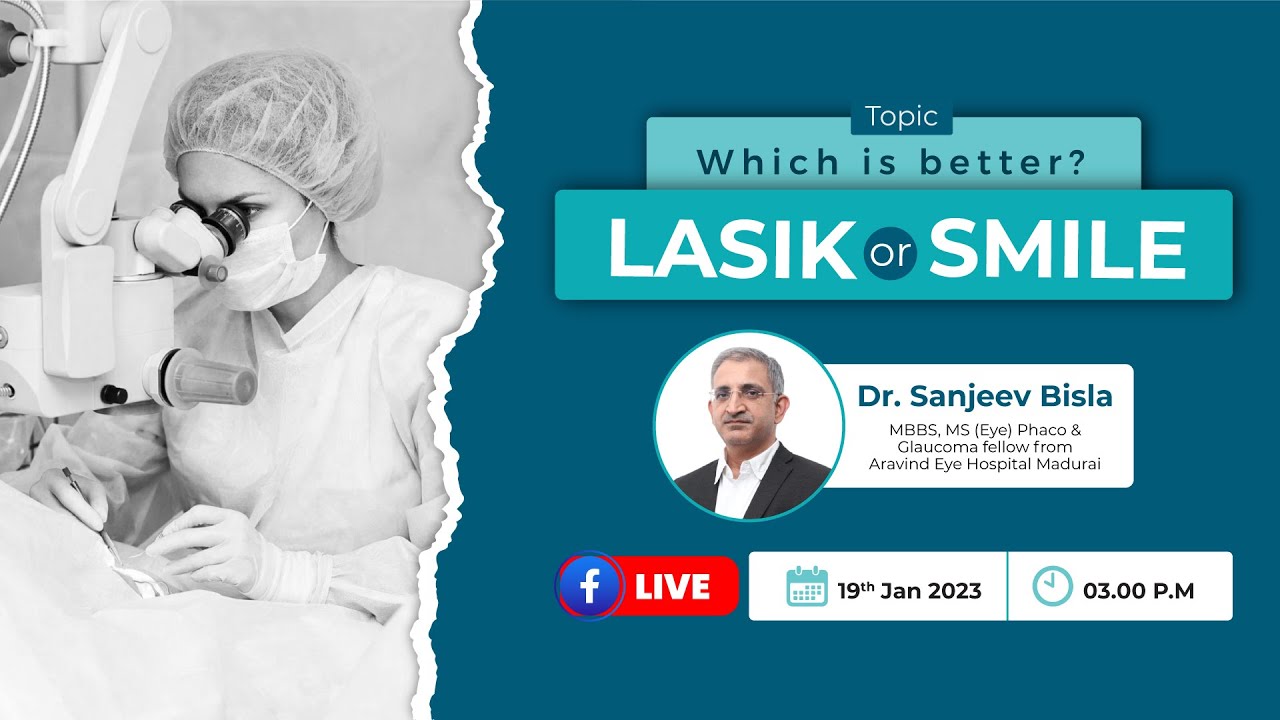
1:33
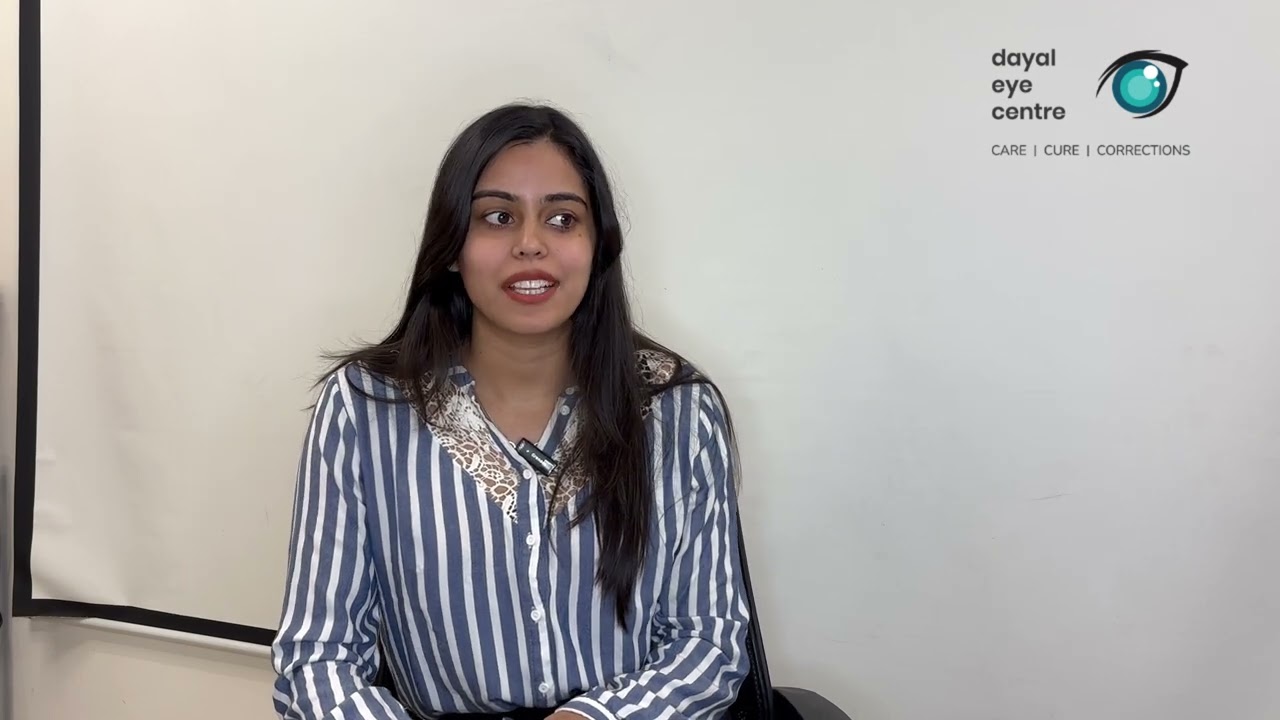
2:49
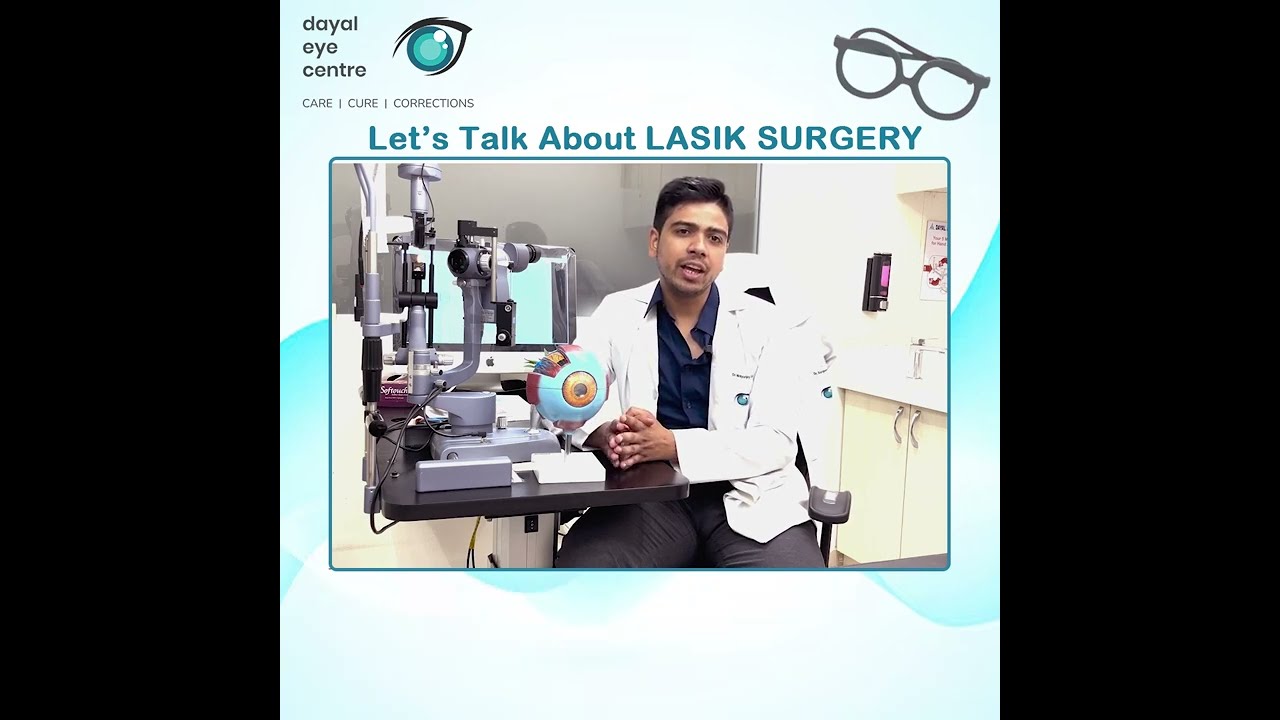
1:42
How Are We Best for SMILE Surgery in Haryana?
Diagnosis Before SMILE Surgery
At Dayal Eye Centre, we conduct a comprehensive pre-surgical evaluation to determine if you're a suitable candidate for the SMILE procedure. Below is an overview of the steps involved:
Comprehensive Eye Checkup
We begin by evaluating the overall health of your eyes to identify any conditions such as glaucoma or cataracts that could impact the surgery.
Corneal Mapping and Topography
We use advanced imaging technology to analyze the shape, curvature, and thickness of your cornea, ensuring there are no abnormalities that might affect the procedure.
Measurement of Refractive Error
We measure the degree of your nearsightedness (myopia) and astigmatism to confirm they fall within the appropriate range for SMILE surgery.
Pupil Size Assessment
We determine the size of your pupils, especially in low light, to optimize the surgery and minimize post-operative visual issues.
Ocular Surface and Tear Film Evaluation
We assess your tear film quality, as dry eye can affect recovery and comfort, ensuring your ocular surface is healthy before the procedure.
Endothelial Cell Count
We analyze your corneal endothelial cell count using specular microscopy, as a low cell count can increase surgical risks and hinder recovery.
Retinal and Optic Nerve Health
We perform OCT imaging to evaluate the health of your retina and optic nerve, ruling out any underlying issues that could affect your vision.
Prescription Stability
We verify that your prescription has remained stable over the past year to ensure a successful surgical outcome.

Who Should Undergo SMILE Surgery?
Minimum Age Requirement: 18 years or older
Stable Prescription: Your eye care prescriptions should not have changed in the past 6 months.
Nearsightedness: Prescriptions should range from -1 to -10
Astigmatism: Should not exceed 3 diopters
Eye Health: Eyes must be in good condition
Avoid If: You have glaucoma, keratoconus, unbalanced glucose levels, or eye-related allergies
Not Recommended: During pregnancy or nursing, but can be scheduled afterwards
Our Expert Team
How Are We the Best for Vision Correction in Haryana?
Numbing and Preparation
The procedure starts by applying numbing eye drops to ensure comfort. An eyelid speculum is then used to keep your eye open, while gentle suction stabilizes it for precision.
Reshaping the Cornea
Using the VisuMax femtosecond laser, a precise lenticule is created within the cornea, along with a small 4mm opening—customized to correct your specific refractive error.
Removing the Lenticule
The lenticule is gently extracted through the tiny incision, reshaping the cornea and correcting the vision problem.
Vision Correction
By removing the lenticule, the cornea is reshaped to properly focus light on the retina, resulting in clearer and sharper vision.
Healing and Recovery
After the procedure, it’s recommended to avoid strenuous activities like contact sports and dusty environments to support a smooth recovery.
Take the first step toward clear vision! Schedule a consultation today to find out if you’re a candidate for this advanced, blade-free vision correction procedure.
Immediate Post-Surgery Period
After your SMILE procedure, you may experience mild discomfort, light sensitivity, and blurry vision. These are normal as your eyes begin the healing process. You’ll be provided with protective goggles to wear for several days to avoid accidental rubbing of your eyes.
First 24–48 Hours
Rest your eyes frequently during this period. Your doctor will prescribe lubricating eye drops to keep your eyes comfortable and reduce dryness. It’s normal to notice fluctuations in your vision as your eyes adjust and stabilize.
First Month of Recovery
Most patients see a significant improvement in their vision within the first month. Dryness and discomfort typically decrease, and many patients find they no longer need glasses or contact lenses.
Long-Term Recovery
Optimal vision results are usually achieved within a few months. Continue following your post-operative care plan, including using eye drops and protecting your eyes as advised, to maintain the best possible outcome.
Take the first step toward clear, glasses-free vision—book your appointment at Dayal Eye Centre today!
There are certain medical conditions that may make you unsuitable for SMILE eye surgery. You should avoid the procedure if you:
- Are currently pregnant or breastfeeding
- Have had frequent changes in your glasses or contact lens prescription recently
- Suffer from advanced glaucoma or have corneal scars
- Have certain skin diseases that may affect healing
- Have keratoconus or other corneal disorders
- Have poorly controlled diabetes
- Are dealing with vision-impairing cataracts
- Have a history of eye surgeries, injuries, or infections
If you’re unsure whether you qualify for SMILE surgery, our specialists at Dayal Eye Centre can help assess your condition and guide you toward the most suitable vision correction option.
- Undergo a thorough eye examination, including slit-lamp evaluations, vision testing, and corneal mapping, to assess your eye health and determine the extent of any refractive errors.
- Provide a detailed medical history, including any existing health conditions, medications, allergies, and lifestyle habits, to help our surgeon tailor the procedure to your needs.
- Stop wearing contact lenses at least two weeks before the surgery to allow your cornea to return to its natural shape for accurate treatment.
- Avoid consuming alcohol for 24 hours prior to the procedure to minimize the risk of post-operative discomfort and prevent possible interactions with medications.
- Start using the prescribed antibiotic eye drops three days before the surgery to reduce the chance of infection.
- Refrain from wearing eye makeup for at least one week before the procedure to avoid introducing irritants near your eyes.
- Wear comfortable, loose-fitting clothing on the day of surgery, and arrange for someone to accompany you home, as your vision may remain blurry for the first 24–48 hours.
- Ready to embrace a life with clearer vision?
Proper preparation leads to a smoother surgery and faster recovery. Contact us today to book your consultation!
More Details About SMILE Surgery in Haryana
Total Cost for SMILE Surgery in Haryana
SMILE Eye Surgery – Rs. 1,00,000 – 1,30,000 for both eyes.
Pyment Options Available in Dayal Eye Centre
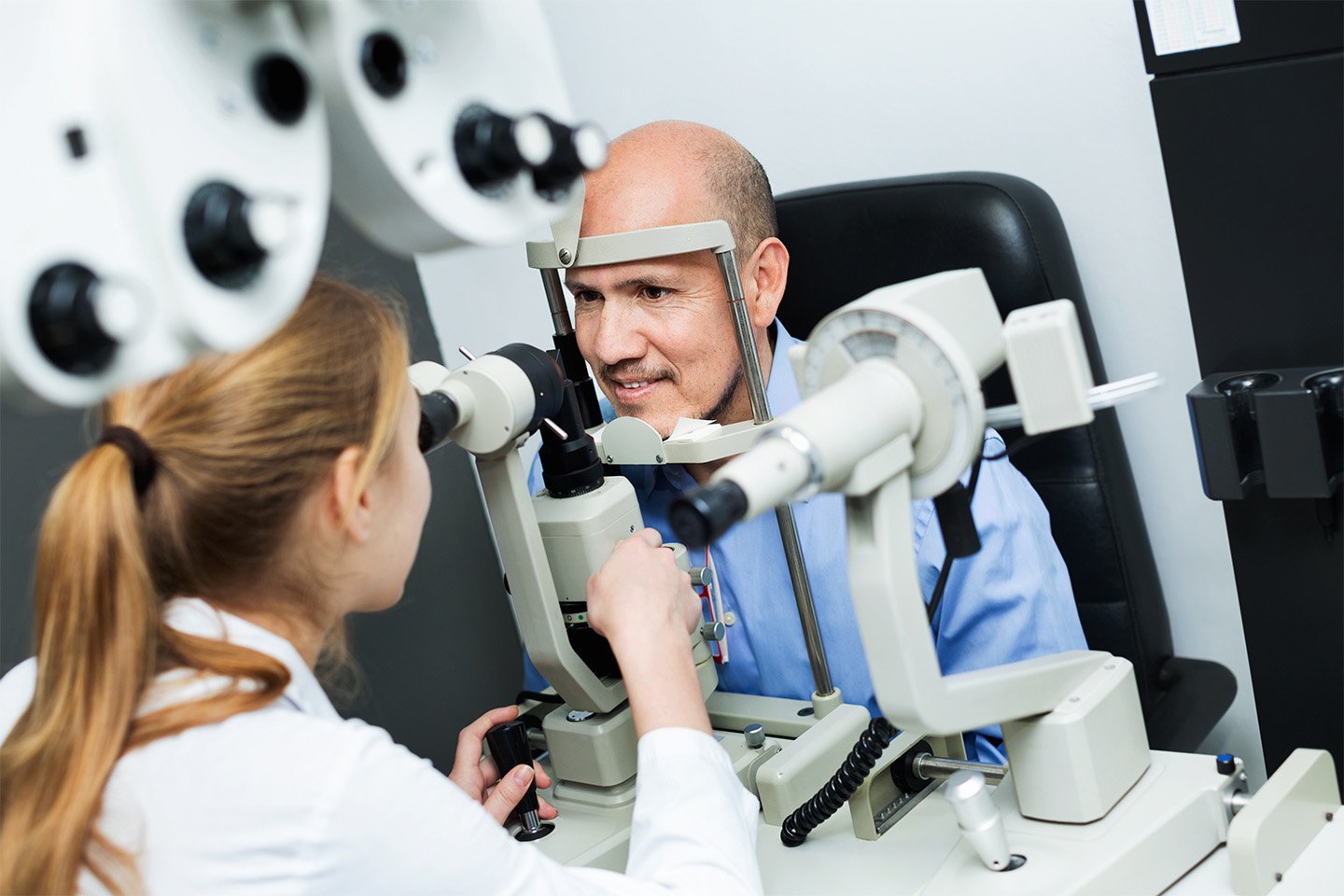
Benefits of SMILE Surgery
- Minimal Downtime : Most patients return to daily activities within 1–2 days. Avoid makeup, contact sports, and swimming for 3 days.
- Ideal for Specific Patients : Best suited for individuals with thin or irregular corneas, dry eye conditions, or those involved in contact sports.
- Clear Vision : Patients achieve 20/20 vision, reducing the need for corrective glasses or contacts.
- Long-Lasting Results : SMILE reshapes your cornea, with effects lasting over a decade, though age-related changes may occur later.
- Convenience and Comfort : Enjoy an active lifestyle without the hassle of glasses or contact lenses, providing increased convenience and comfort.
Recovery Tips
- Follow-Up Examination : Visit our doctor for a follow-up examination. Once cleared, you can resume activities like cleaning your face, applying makeup, and using electronic products. Always consult with our doctor to ensure your recovery is on track.
- Physical Activity : Light exercises such as jogging and stretching are allowed. However, avoid activities that increase intraocular pressure or require bending your head down.
- Lifestyle Adjustments : Alcohol and smoking are permissible but should be minimized to reduce inflammation and dry eyes.
- Return to Normal Activities : You can gradually resume high-energy sports and cosmetic procedures like hair coloring, provided you feel comfortable and have been cleared by your doctor.
Risk of SMILE Surgery
- Night vision issues
- Infection
- Inflammation
- Clouded vision
- Dry eyes
- Blindness
- Cornea bulging
- Miscorrection
- Debris
Frequently Asked Questions
How long does the SMILE procedure take?
The entire procedure takes about 10–15 minutes per eye . Most patients notice improved vision almost immediately, though full stabilization may take a few days to weeks.
Are the results of SMILE permanent?
Yes, the vision correction achieved through SMILE is permanent . However, natural aging changes (like presbyopia) may still affect your vision later in life, possibly requiring reading glasses.
What is the recovery time after SMILE surgery?
Most patients return to normal activities within 1–3 days . You should avoid:
Rubbing your eyes
Swimming for at least a week
Contact sports for at least a month
Your surgeon will provide a detailed post-op care plan.
How do I prepare for SMILE surgery?
Follow these steps to prepare:
Stop wearing contact lenses at least 2 weeks before the exam
Avoid makeup and creams around the eyes for 1 week before surgery
Do not consume alcohol 24 hours before the procedure
Use prescribed antibiotic eye drops as directed
Arrange for someone to drive you home after surgery
Am I a good candidate for SMILE?
Am I a good candidate for SMILE?
